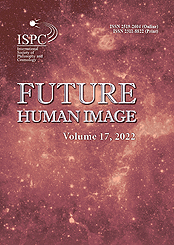The Impact of Russia’s Soft Power on Georgia and Economic Relations
The Impact of Russia’s Soft Power on Georgia and Economic Relations
Author(s): Alika Guchua, Gorda GibradzeSubject(s): Economy, Supranational / Global Economy, International relations/trade
Published by: Международное философско-космологическое общество
Keywords: Soft Power; Military Conflicts; South Caucasus; Regional Security; Russia; Georgia; Ukraine; NATO; Economic security;
Summary/Abstract: The South Caucasus region has always been an area of interest for major states. It all stems from the geopolitical and geostrategic location of this region. In the 21st century, its role is growing. The political stability of the South Caucasus does not depend only on the three states in the region, but also on regional players: Russia, Turkey, the European Union, the United States, Iran, etc. The main security challenges in the South Caucasus regions are separatist conflicts, which include many unresolved conflicts involving external forces. It should be noted that Russia is the main actor in the conflicts. Turkey also has its own geopolitical interests. It must be said that the growing southern conflicts in the Middle East, which have taken on a permanent character, have a significant impact on the conflicts in the South Caucasus. It must be said that the Russian factor in the South Caucasus region, especially for Georgia, has a very negative impact. As Georgia announced its pro-Western course and began to work quite actively on joining Euro-Atlantic structures, relations with Russia have since become extremely strained. The same can be said for Ukraine, which aspires to become a member of the Euro-Atlantic family. Russia has pursued an aggressive military policy and has also been a major emperor in terms of ethnic conflicts in Georgia. Russia considers the South Caucasus region as its sphere of influence and is quite aggressive in pursuing the policy of new players. A clear example of all this is the August 2008 Russia-Georgia war. With regard to Ukraine, the annexation of Crimea in 2014 and the Russia-Ukraine war in 2022. It is in Russia’s interest to expand its influence in the post-Soviet space, especially in the Black Sea region. Russia is trying to increase its influence and control of the South Caucasus region through its military-political and economic actions. The article discusses the role of Russia’s “soft power” in Georgia’s security and key aspects of economic policy.
Journal: Future Human Image
- Issue Year: 2022
- Issue No: 17
- Page Range: 14-19
- Page Count: 6
- Language: English

